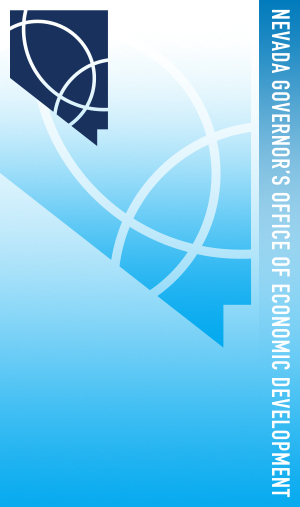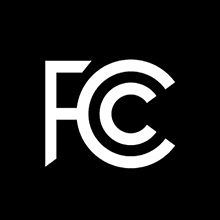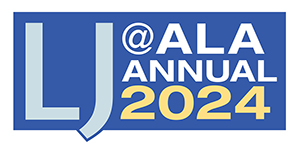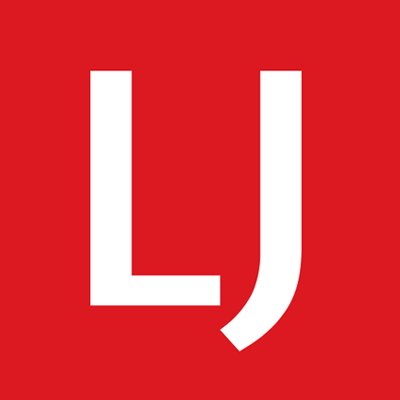Matt Enis
524 Articles
From:
To:
NTIA Announces Availability of $1 Billion in Digital Equity Grant Funding
The U.S. Department of Commerce’s National Telecommunications and Information Administration (NTIA) on July 24 announced the availability of almost $1 billion in competitive grant funding for programs that “support efforts to achieve digital equity, promote digital inclusion activities, and spur greater adoption and meaningful use of broadband,” according to a notice of funding opportunity posted by the agency. Application materials are available on NTIA’s BroadbandUSA website, and must be submitted through the NTIA Grants Portal by September 23.
Nevada Libraries Launch Workforce Development Program with VR, Librarians-in-Residence
Nevada’s libraries have long been an important part of the state’s workforce development programs, and in June, the state’s Board of Examiners approved a new librarian-in-residence program for two municipal systems—the North Las Vegas Library District and the Carson City Library—that will boost those efforts. For two years beginning last month, these librarians-in-residence will facilitate an Individual Career Mapping and Training Delivery Model program developed by the Nevada Governor’s Office of Economic Development with libraries throughout the state. The program includes innovative features such as hands-on virtual reality “field trips” and access to NCLab’s Career Readiness Assessment to build STEM skills.
FCC Enables Libraries, Schools to Use E-Rate Funding for Wi-Fi Hotspots
The U.S. Federal Communications Commission (FCC) on July 18 voted to allow libraries and schools to use funding from the federal E-rate program to purchase Wi-Fi hotspots for lending. A component of FCC Chair Jessica Rosenworcel’s Learn Without Limits proposal—which was announced at the American Library Association’s (ALA) 2023 Annual Conference in Chicago—integration of hotspots into the program was aimed at responding to increasing connectivity needs and modernizing the E-rate program.
News from Exhibitors and More | ALA Annual 2024
The American Library Association’s 2024 annual conference and exposition included many announcements from library vendors. Here’s a roundup of some of the news from this year’s show floor.
FIU Transforms Library Services with AI | ALA Annual 2024
Anyone who is attending this year’s American Library Association (ALA) Annual Convention in San Diego hoping to hear more about artificial intelligence (AI) and its impact on libraries has not been disappointed. “Breaking Boundaries: Harnessing the Power of Artificial Intelligence and ChatGPT to Transform Library Services,” one of the earliest panels on Saturday morning, was presented to a full house—five conjoined rooms with every seat taken.
Seattle Public Library Recovering from Ransomware Attack
The Seattle Public Library (SPL) is continuing to recover from a ransomware attack on Saturday, May 25. At press time, all branches were open, in-person and virtual programs and events were still being hosted, books and other physical materials were available for checkout, and online services provided by third-party vendors including ProQuest, Hoopla, Kanopy, and others were available to patrons. However, access to SPL’s ebooks and e-audiobooks, public computers, in-building Wi-Fi, printing and copying services, pickup lockers, museum pass services, interlibrary loan services, and some other online resources remained unavailable.
JSTOR, MIT Press Illustrate the Positive Impact of Open Access in Recent Reports
JSTOR’s Path to Open pilot project and MIT Press’s Direct to Open program are both demonstrating that open access (OA) monographs are receiving significantly more use and are cited more often than non-open counterparts, according to a recent JSTOR webcast and an impact report released last week by MIT Press.
New Educational Resources, Licensing Terms, Hackathons, and More | AI Roundup
Libraries, vendors, and library organizations have been busy with several recent artificial intelligence (AI) initiatives—check out LJ's roundup of the latest news from the field.
LJ Survey: Academic Librarians See Increased Usage of AV Resources
Fifty-seven percent of academic libraries report that the use of audiovisual (AV) sources such as news reels, recordings, performances, and films have increased over the past three years—with 21 percent describing significantly increased usage—while only 15 percent say that use of these resources have decreased, according to Library Journal’s recent AV Primary Sources Survey of Academic Libraries, sponsored by AM, that netted 220 responses from academic librarians in the United States and Canada. Thirteen percent of respondents said that college and university students now prefer AV primary source materials, compared with 18 percent who prefer print and other archival primary source materials.
ALREADY A SUBSCRIBER? LOG IN
We are currently offering this content for free. Sign up now to activate your personal profile, where you can save articles for future viewing










